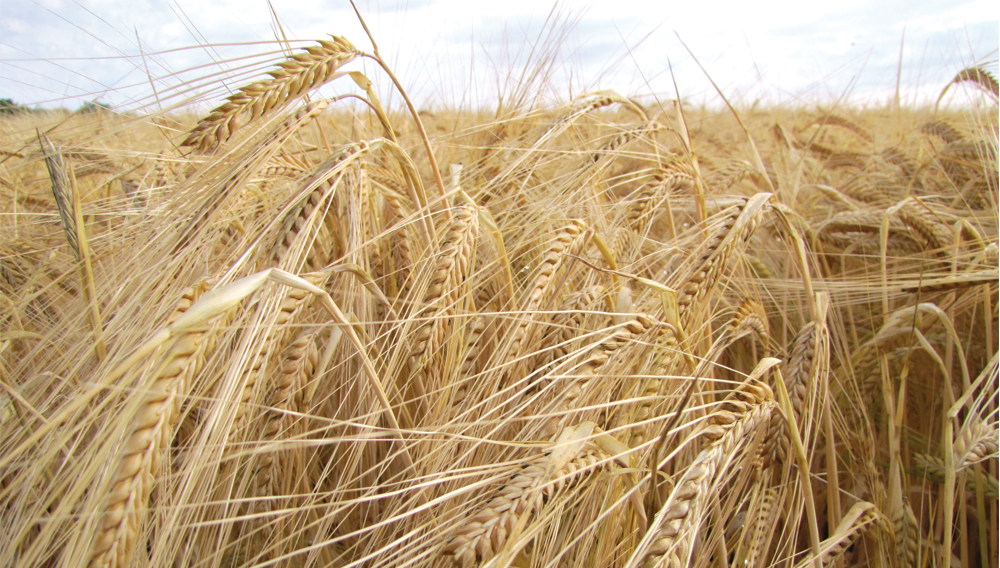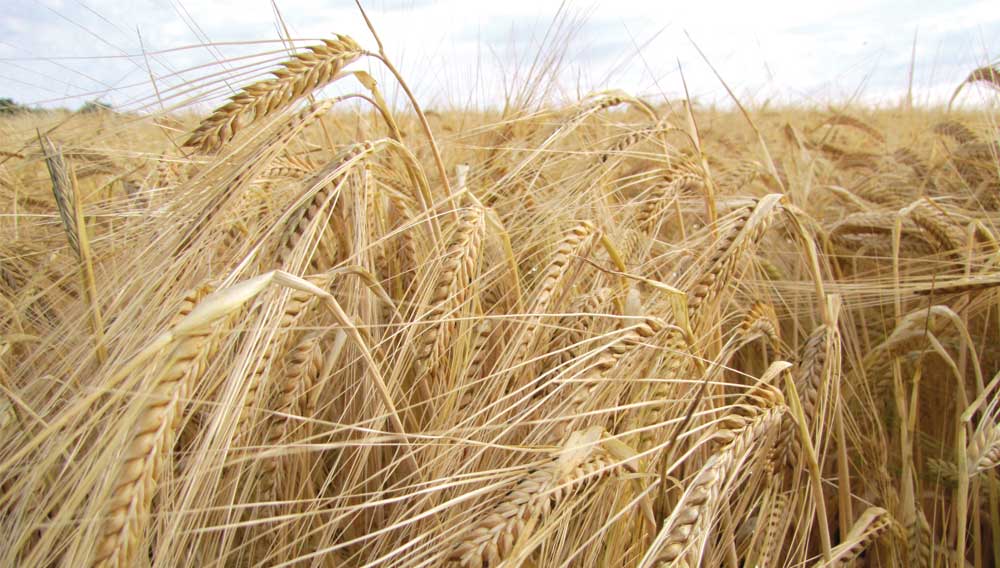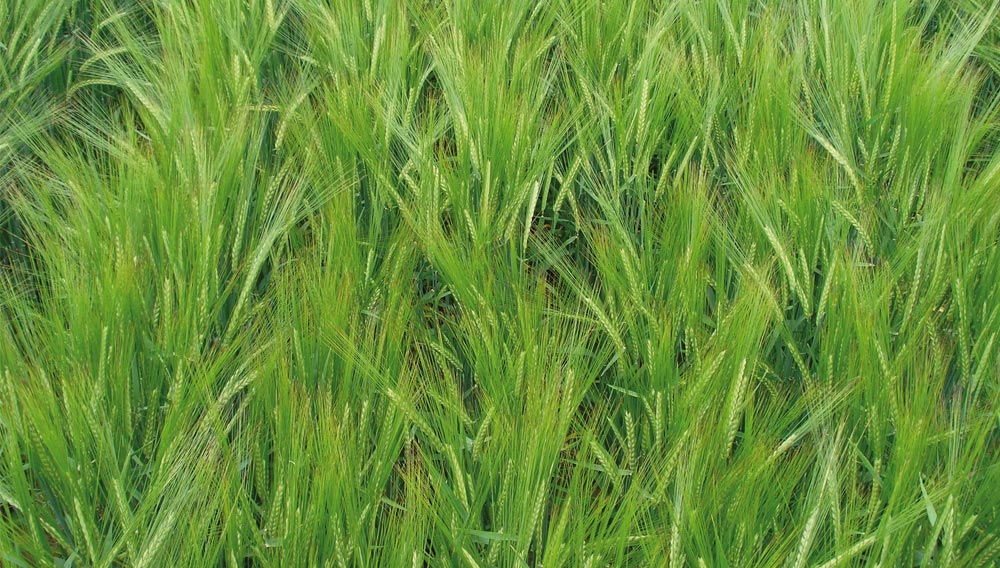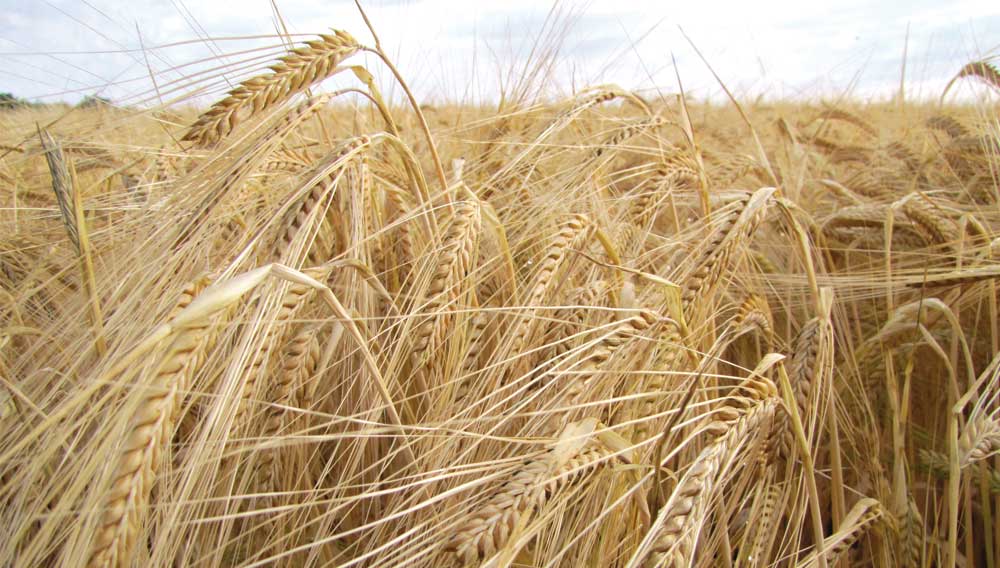
The Next Big Thing | Malting barley is the next big thing in the craft brewing scene – after the boom of hops. In part one of this contribution (see BRAUWELT International No. 2, 2018, pp. 90-92), Chris Swersey, Supply Chain Specialist of the Brewers Association, Boulder, USA, described the gap challenging the US barley malting industry. Part two focuses on malt quality requests and the North American barley basket.
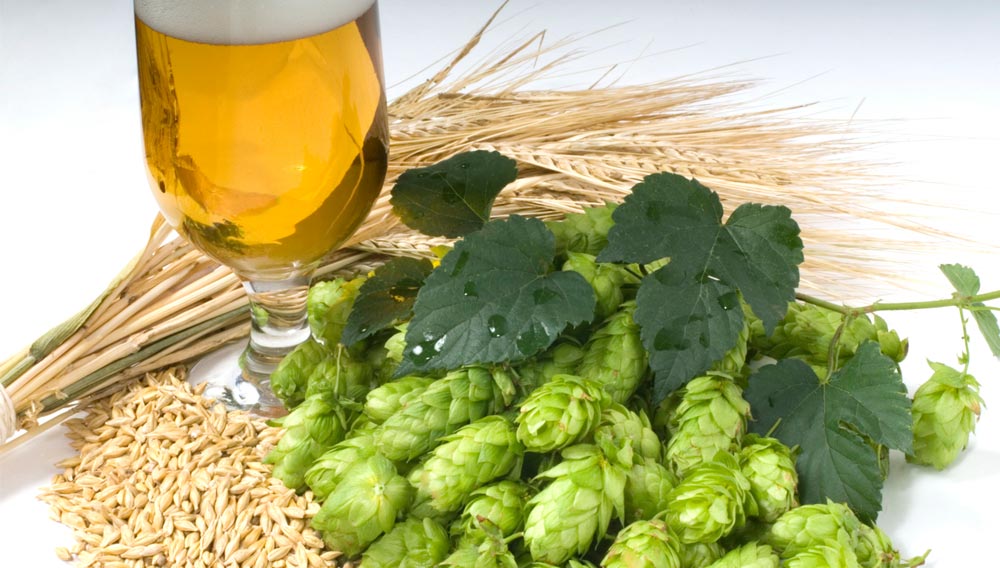
Individual experiences | In recent years, dry hopping has become part and parcel of a scientific debate at several brewing colleges. But by far not all parameters have been investigated. A very important parameter, so far neglected scientifically, is temperature during dry hopping. Every brewer has made his own experiences in that field.
Sleeping Beauty | After the boom in the hop industry, caused by the craft brewing scene, the barley malting industry is the next sleeping beauty to be awaked. Chris Swersey, Supply Chain Specialist of the Brewers Association, Boulder, USA, sheds a light on recent developments.
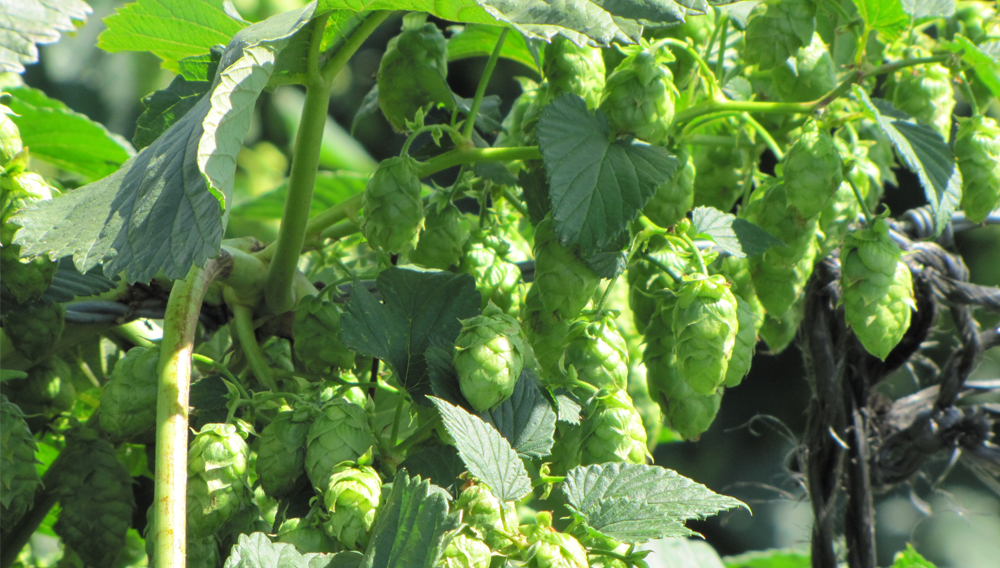
Impact analysis | Dry hopping is a very popular method to bring hop aroma to beer. But how can it influence the brewing process and the final beer? The first part of this paper (BRAUWELT International No. 1, 2018, pp. 25-29) discussed the impact it can have on bitterness, the IBU, and pH. This contribution focuses on foam, as many craft brewers who dry hop experience poor foam stability while others do not. To better understand the impact dry hopping can have on beer foam, a series of dry hopping experiments were performed and foam measurements were made to see what factors effect beer foam stability.
Heirloom & Terroir | As part of the program surrounding this year’s BrauBeviale, RMI Analytics of Hamburg, Germany, will feature an all-day symposium about “Heirloom & Terroir Barley and Malt.” The event will take place on Monday, November 12, on the grounds of the tradeshow. In April, BRAUWELT International Editor-in-Chief Dr. Lydia Junkersfeld conducted an interview with the RMI Managing Director and event organizer, Christian Temme, and Horst Dornbusch, who will moderate the symposium in November.
As expected, the acreage for spring barley in Europe will be smaller this year than in the exceptional year before. The sowing conditions have been good in most regions so far. However, rain is already scarce in the south and east of Europe again.
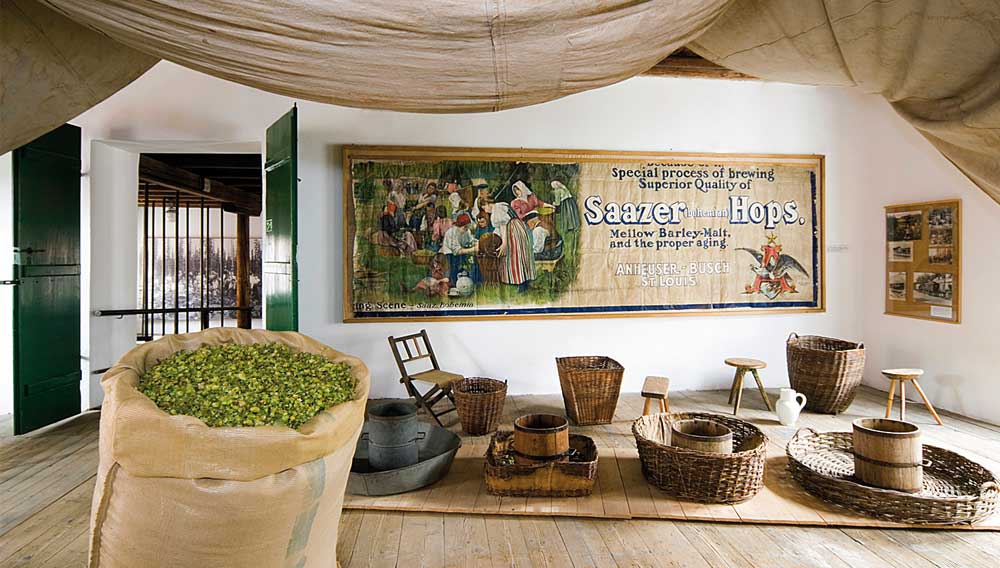
Hops from the Czech Republic | When thinking about Czech Hops, what comes to mind immediately is the well-known Saaz variety. But there is much more to be learned about hops grown in this European country. BRAUWELT International got more information from Zdenek Rosa from the Czech Hop Growers’ Association and Bohemia Hop.
Laboratory tests | It is generally known that hops are able to do much more than provide beer with bitterness, aroma and microbiological stability. To-date, the focus was on yield of bitter substances and hop aroma. However, no systematic research exists about the influence of hop addition and time of addition on oxidative beer stability. A research project at the Department of Brewing Science of the Technical University (TU) Berlin (AiF 17439) was devoted to resolving this issue.
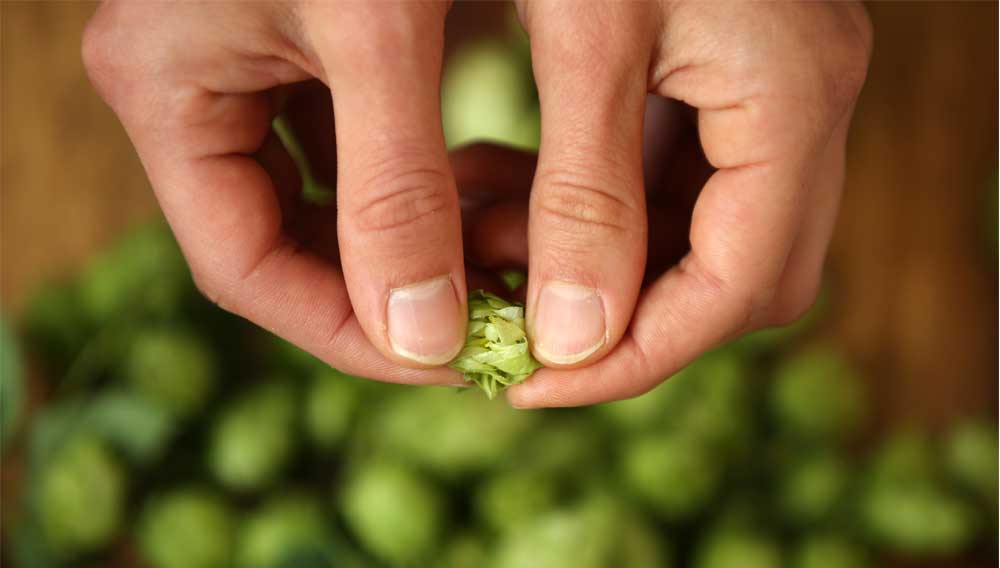
Geraniol derived from hops | Monoterpene alcohols are regarded as very important factors for the ‘Varietal Aroma’ of hops [1, 2]. Linalool is a monoterpene alcohol contained in all hops. However, geraniol is considered to be more variety-specific than linalool. For example, European traditional hop varieties contain very small amounts of geraniol. US hop varieties often have large amounts [3]. In addition, researchers have reported that geraniol may be contained in hops as free geraniol together with several geraniol precursors.
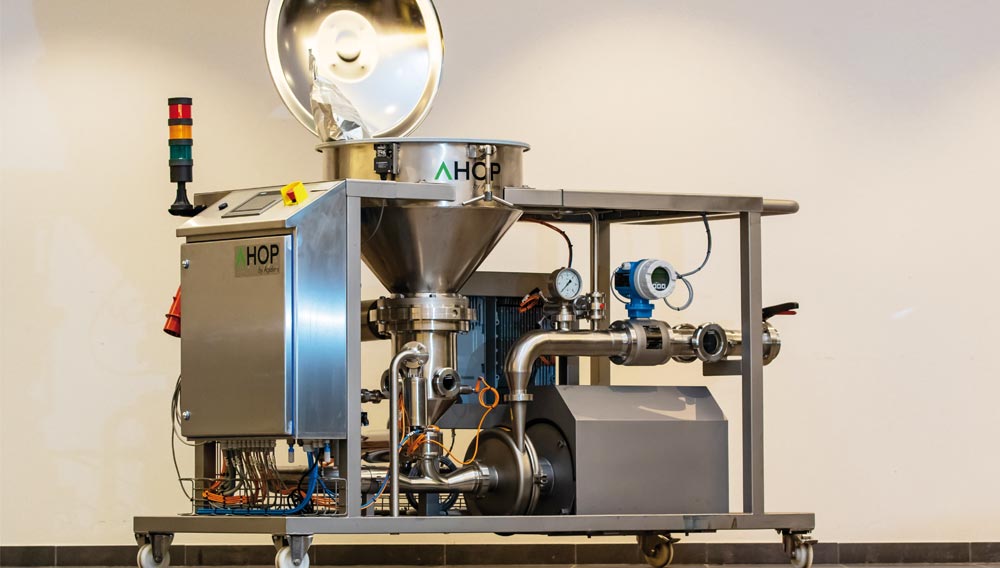
Automated solution | A new generation of beers with a more pronounced and aromatic hop flavour are getting more and more interest from a broad beer drinking audience, led by the IPA revolution. Since the specialty beer volumes are increasing, the current dry-hopping techniques face challenges coping with bigger hop volumes. A safe, controlled and automated solution will augment efficiency and lower the cost of the process and hop usage while improving beer quality and flavour.
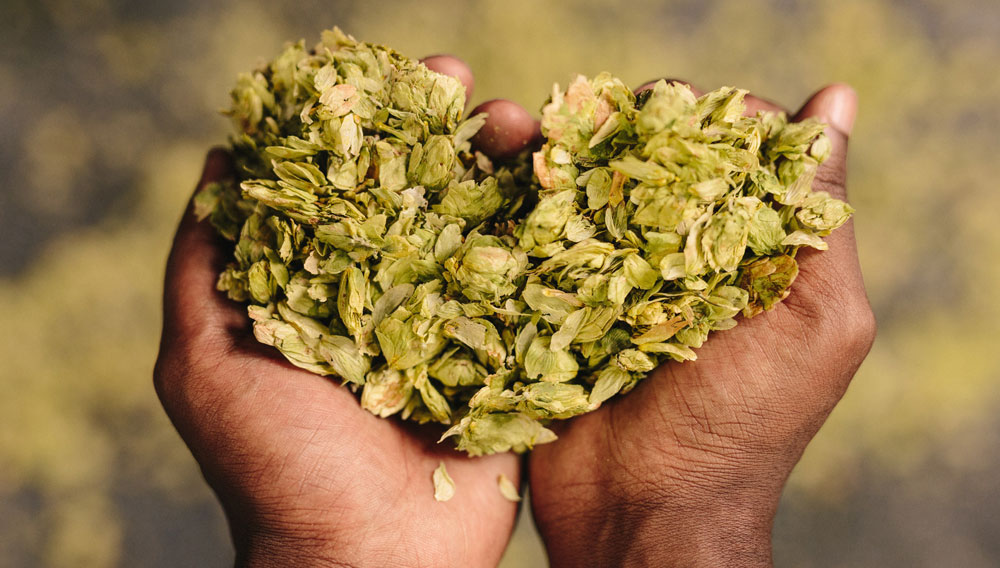
Special methodology | The continuing popularity of dry hopped beers and special hop varieties, with a multitude of aromas indispensable for brewing them, call for ana analytical characterisation of the influence of hops on the aroma of dry hopped beers. The Headspace Trap gas chromatography mass spectrometry (HS Trap GC-MS) method was developed to address these questions.



